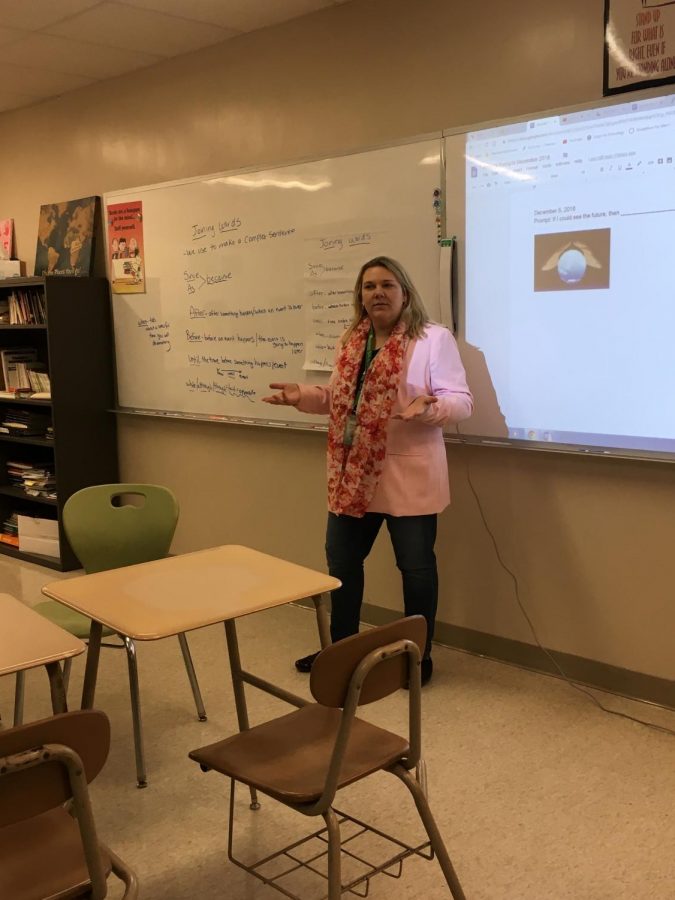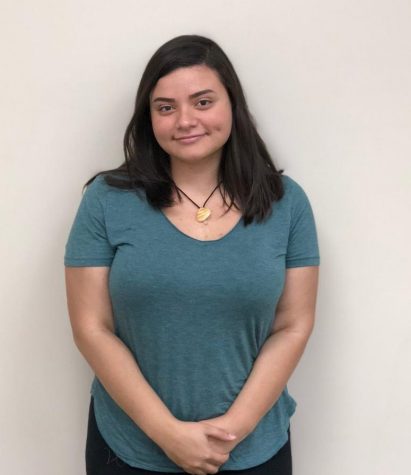Language barrier impacts student learning
Sarah Dellinger lectures to her ESL students in front of her classroom board.
December 7, 2018
MHS offers an ESL (English as a Second Language) program for students who don’t speak fluent English.
Sarah Dellinger is head of the ESL program and uses many different tactics to help students learn English. Dellinger said, “The ESL program here is pretty awesome because we understand that students are going to come in with different levels of experience and learning in their native language and of course any learning that they have done in English.”
She uses four domains as the platform for learning English in order to help students where they struggle most. Dellinger said, “We really focus on four domains: reading, writing, listening, and speaking. The ultimate goal is to make a bridge because ESL students have this gap that they don’t have English as their first language and it’s tough and makes things tricky especially if the assignment is about content they’ve never heard or if the class conversation is moving very quickly.
“Something like that can cause little roadblocks for the student so we try to bridge that gap and elevate their learning so that the goal is for them to learn successfully alongside their peers in the same class,” she said
Senior Vladis Alimova moved to America from Uzbekistan when she was young and speaks fluent Russian at home as well as English. She was in the ESL program in Mayfield as an elementary school student.
She said, “It is easier for me to learn in school and speak to people because I’ve had more experience with it but it can get difficult sometimes because I’m still learning the language day by day.”
Senior Zuza Chelstowska speaks Polish as her first language and was in the Mayfield ESL program. She said, “The hardest thing about learning English is understanding the English accent and slang words, which I don’t learn through school work in most of my classes.”
Since Alimova has spoken English for a long time, others such as Chelstowska may not find it as easy. Dellinger said, “The hardest part for a student who doesn’t speak English as their first language is feeling that they can’t catch up, feeling left behind, feeling out of the loop. It’s just so much because they have to take what they hear in English, translate it in their mind, understand it and then think of what they want to say, translate it back into English, think about that grammar and then speak. It’s hard, it’s all about finding a balance while not losing sight of the language they’ve known their whole life.”
While Alimova does transition languages from Russian to English easily, she also has her daily struggles. She said, “It’s not hard to transition from Russian to English because I’ve become more relaxed with it and knowing how to handle both languages through my daily life, but I do have some days where I by accident start saying a couple Russian words while speaking English.”
Chelstowska finds that specific things are harder for her to do in class. She said, “Speaking in front of the class and writing is so much harder for me because of the vocabulary. I used to go home and translate everything.”
Dellinger began working at Mayfield in the 2016-17 school year and works full-time with high school ESL students.























































